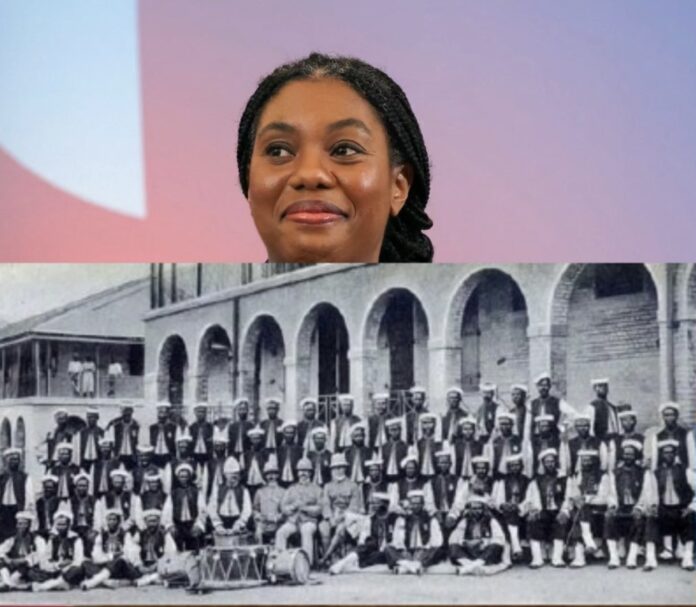Reno Omokri has criticized UK MP Kemi Badenoch for allegedly describing Northern Nigerians as her “ethnic enemies” while fully embracing a British identity tied to a history of colonial violence against the Yoruba people she claims to cherish. Omokri highlighted historical atrocities such as the Battle of Imagbon in 1892, where the British Army used machine guns to kill over 1,000 Yoruba fighters during the British-Ijebu War, and the 1897 British invasion of Benin, which led to mass killings and the looting of cultural treasures.
Omokri further pointed out the long history of intermarriages between Yoruba and Northern Nigerians, citing Sango, the iconic Yoruba leader, whose mother was Nupe—a Northern ethnic group. This, he argued, starkly contrasts with Badenoch’s alleged stance, which appears to reject Nigerian unity.
Calling her allegiance to Britain ironic, Omokri proposed superimposing an image of British colonial soldiers—responsible for Yoruba suffering—onto Badenoch’s photograph, symbolizing the legacy she has chosen to embrace. The critique underscores lingering tensions over identity, colonial history, and ethnic relations in modern political discourse.
For historical accuracy:
The Battle of Imagbon during the British-Ijebu War (1892) saw over 1,000 Ijebu casualties as the British used Maxim guns to secure their victory.
The 1897 Punitive Expedition in Benin resulted in the death of thousands and the destruction of the Benin Kingdom.
Sango’s mother was indeed from the Nupe ethnic group, emphasizing longstanding ties between Yoruba and Northern Nigeria.
Omokri’s remarks have reignited discussions about colonial legacies, ethnic unity, and the complexities of African identity in diaspora politics.




